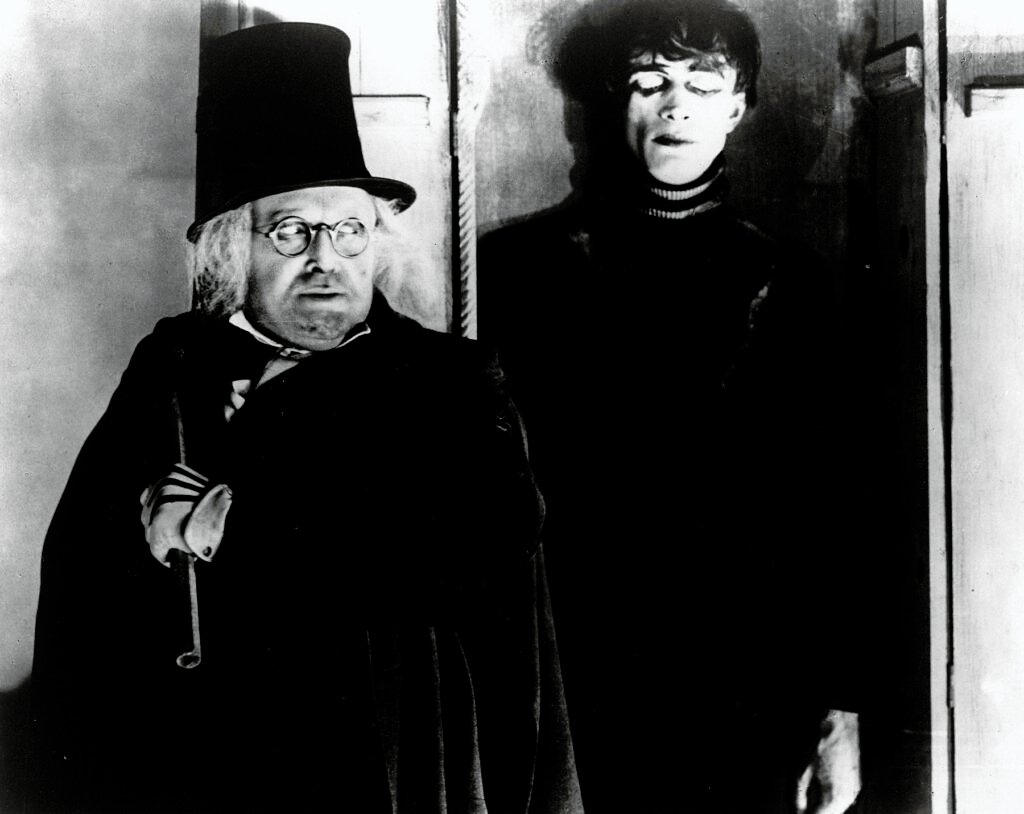In the contemporary world of biopics and biographical dramas, Oppenheimer emerges as a unique cinematic experience, transcending the conventional boundaries of its genre. The film masterfully weaves a captivating biographical narrative, while also delving deep into profound philosophical themes such as humanity and human disillusionment. In doing so, it elevates the art of visual storytelling to new heights, redefining the very essence of biographical dramas.
Through skillful manipulation of light and shadow, the film creates a thought-provoking atmosphere. The interplay of white lights on the screen adds a poetic dimension to its visual narration, expanding the scope of its storytelling. Furthermore, while Oppenheimer is persuading fellow scientists to join his endeavor there is use of low-angle shots, placing Oppenheimer in the position of a prophet, evoking a sense of dominance and grandeur. The cinematic choice is marvelous.
To a certain extent, the philosophical ideas in the film alludes to Shakespeare’s Macbeth, with its allusion of blood-stained hands and the haunting consequences of human destruction caused by human deeds, greed, desire, and knowledge. Upon zooming in on the relationship between Strauss and Oppenheimer in the film, viewers are exposed to a deeply nuanced conflict. It unveils a profound struggle between personal conviction and the burden of a troubled conscience. The haunting dilemma of the potential catastrophic consequences that Oppenheimer’s work may unleash on humanity draws striking parallels to literary figures like Lady Macbeth´s descent into madness and Dr. Faustus´s pursuit of redemption in the final acts after making a pact with the devil. These literary references serve as powerful allegories, raising questions about the moral repercussions of human actions and the quest for redemption. The comparisons between these literary figures and Oppenheimer prompt us to reflect on the inherent unreliability of human choices and the potential consequences of our actions.
At its core, Oppenheimer compels viewers to ponder the complexities of war, science, and the disillusionment that can pervade the human experience. It challenges us to confront the moral dilemmas inherent in the pursuit of knowledge and power, leaving a lasting impact on our consciousness.
In its poignant endeavor to draw the viewers’ attention to the devastating consequences of war and the perils that await when scientific advancement veers astray, the filmmaker employs a profound visual metaphor. This thought-provoking scene features the character gripping Eliot’s The Waste Land, a literary work that symbolizes the desolation and futility of human endeavors. By juxtaposing this powerful image with the narrative, the film underscores the harrowing outcomes that arise from armed conflict.
The Chain Reaction, as mentioned time and again in the film, takes on a profound symbolic meaning beyond its scientific implications, symbolic of the advancement of knowledge which will happen after the making of the first atomic bomb. With the successful development of the atomic bomb, the world witnessed a significant leap forward in the realm of knowledge and technology, forever altering the course of global events. Perhaps a kind of chain reaction, that will stir the intellectuals and scientists globally, albeit in a manner that raises concerns about responsibility.
The film’s narrative provides a rich and thought-provoking exploration of ethical dilemmas arising from the pursuit of scientific advancements, the consequences of war, and the burden of individual responsibility in shaping the course of history.
Perhaps, the complex and morally charged film may find a prominent place in the classrooms of ethics.
Signing off with TS Eliot’s words
This is the way the world ends
This is the way the world ends
This is the way the world ends
Not with a bang but a whimper.



Leave a Reply